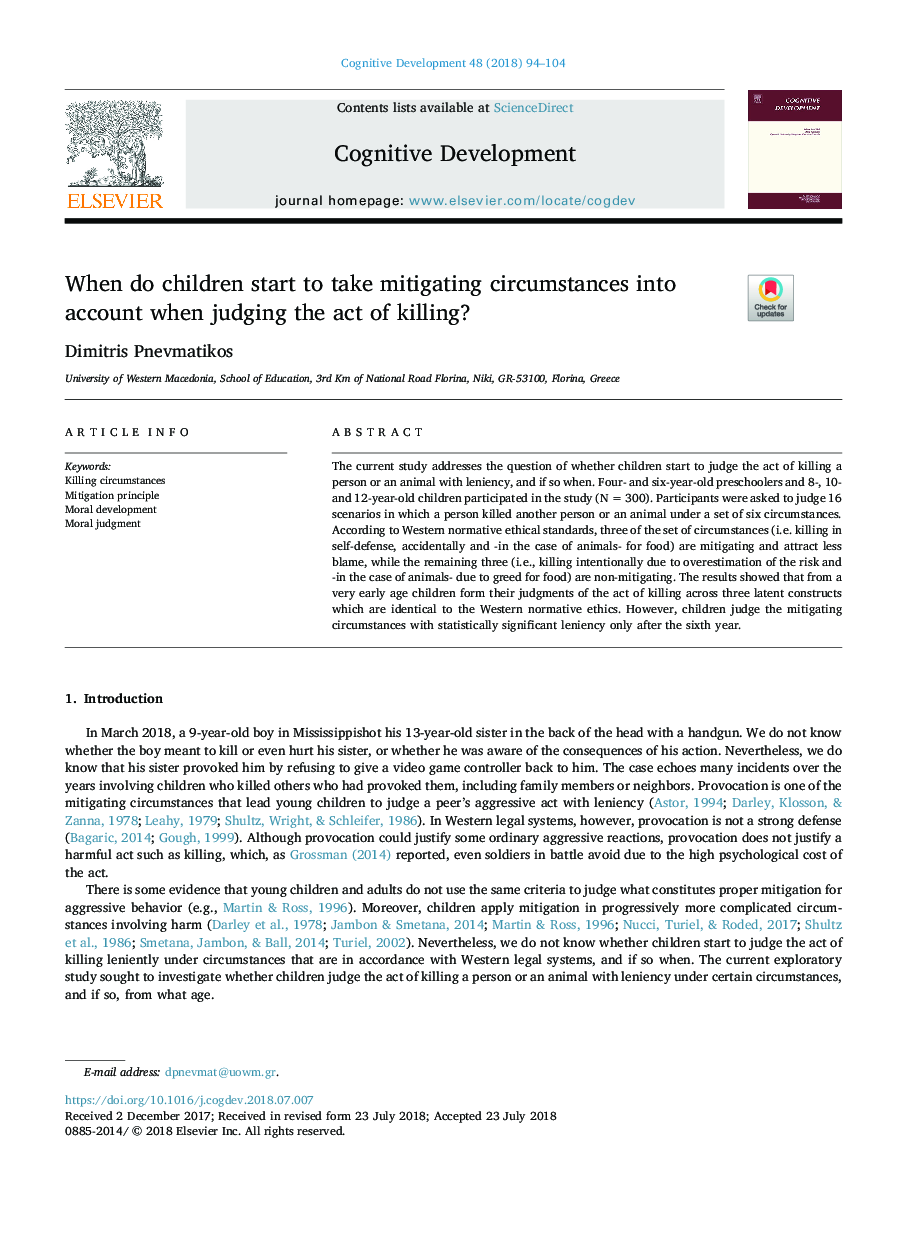| کد مقاله | کد نشریه | سال انتشار | مقاله انگلیسی | نسخه تمام متن |
|---|---|---|---|---|
| 7272034 | 1473335 | 2018 | 11 صفحه PDF | دانلود رایگان |
عنوان انگلیسی مقاله ISI
When do children start to take mitigating circumstances into account when judging the act of killing?
ترجمه فارسی عنوان
هنگامی که قضاوت در مورد قتل انجام می شود، کودکان هنگامی که قضاوت در مورد قتل را انجام می دهند، شروع به در نظر گرفتن شرایط تسکین دهنده می کنند؟
دانلود مقاله + سفارش ترجمه
دانلود مقاله ISI انگلیسی
رایگان برای ایرانیان
کلمات کلیدی
شرایط کشتار، اصل تضعیف، پیشرفت اخلاقی، قضاوت اخلاقی،
موضوعات مرتبط
علوم انسانی و اجتماعی
روانشناسی
روانشناسی رشد و آموزشی
چکیده انگلیسی
The current study addresses the question of whether children start to judge the act of killing a person or an animal with leniency, and if so when. Four- and six-year-old preschoolers and 8-, 10- and 12-year-old children participated in the study (Nâ=â300). Participants were asked to judge 16 scenarios in which a person killed another person or an animal under a set of six circumstances. According to Western normative ethical standards, three of the set of circumstances (i.e. killing in self-defense, accidentally and -in the case of animals- for food) are mitigating and attract less blame, while the remaining three (i.e., killing intentionally due to overestimation of the risk and -in the case of animals- due to greed for food) are non-mitigating. The results showed that from a very early age children form their judgments of the act of killing across three latent constructs which are identical to the Western normative ethics. However, children judge the mitigating circumstances with statistically significant leniency only after the sixth year.
ناشر
Database: Elsevier - ScienceDirect (ساینس دایرکت)
Journal: Cognitive Development - Volume 48, OctoberâDecember 2018, Pages 94-104
Journal: Cognitive Development - Volume 48, OctoberâDecember 2018, Pages 94-104
نویسندگان
Dimitris Pnevmatikos,
